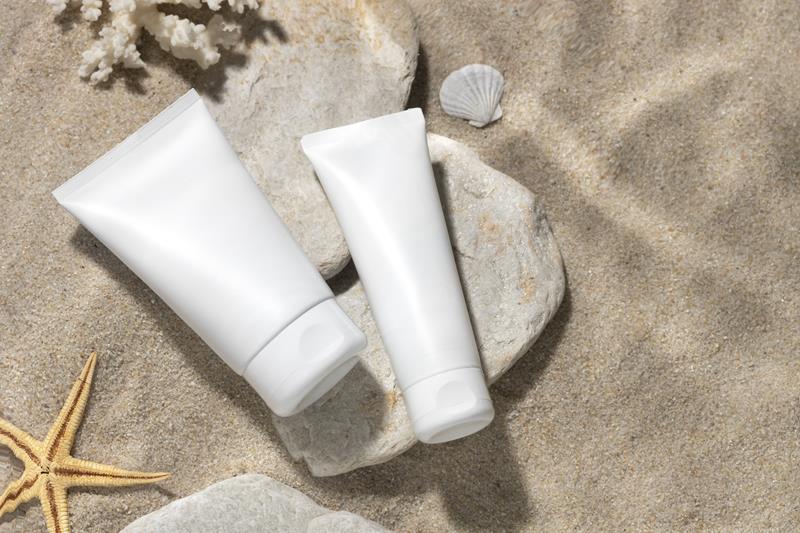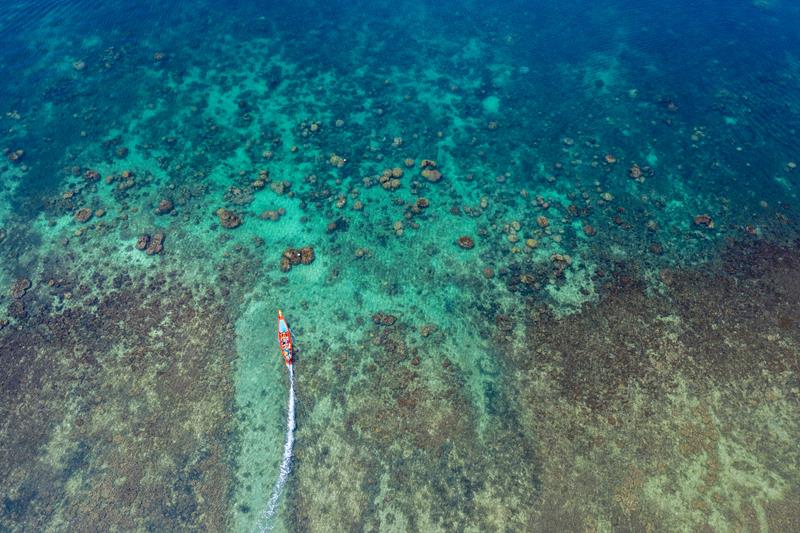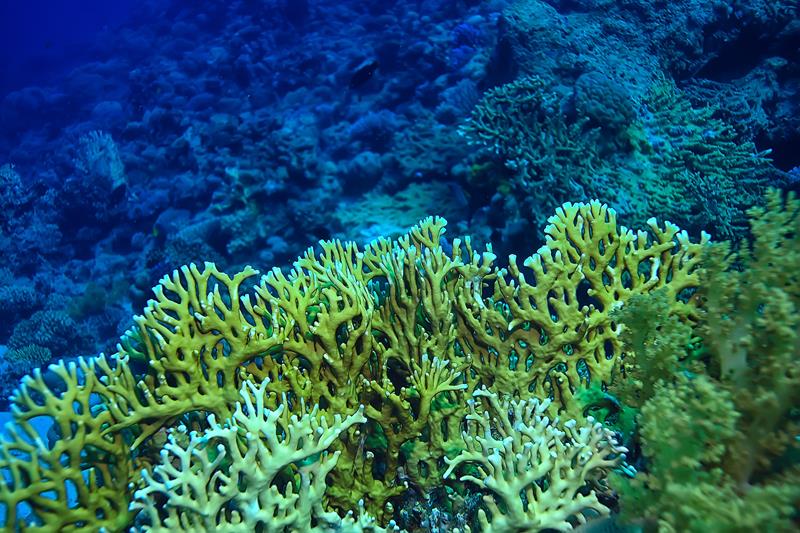Today, people can explore the ocean’s deep, slow life through diving and snorkeling. While applying sunscreen before a swim is common advice to shield your skin from irritation and sunburn, have you ever considered how does sunscreen damage coral reefs? Let’s explore why this marine ecosystem is crucial and how we can work to safeguard it.
Sunscreen Effect on Coral Ecosystems
Scientists have found that certain ingredients in sunscreen cosmetics and other personal care products harm the marine ecosystem. When washed off by waves, these products dissolve in seawater, leading to the spread of viruses and eventually causing coral bleaching. Far from being negligible, this impact grows each year as more people snorkel, with sunscreen amounts reaching toxic levels. Estimates suggest that around 14,000 tons of sunscreen end up in the ocean annually.
Overusing sunscreens results in coral bleaching, undermining the essential symbiotic relationships within reefs and increasing their vulnerability to viral infections. Additionally, SPF chemicals disrupt algae growth and photosynthesis, alter ocean aeration and oxygen levels, and interfere with the reproductive cycles of marine organisms.
Breathtaking underwater coral life
Underwater corals showcase a vibrant kaleidoscope of colors and activity. Coral reefs, often dubbed the “rainforests of the ocean,” shelter thousands of marine species, ranging from tiny shrimp to grand sharks. These intricate and interconnected ecosystems are among the most diverse and fascinating environments on Earth.
Just as a brick house shields people from cold, wind, and weather, coral polyps offer protection to marine life. Behind their walls, countless species of fish, shellfish, algae, turtles, and even birds find shelter, spawn, reproduce, and grow.
Scientific research on the marine ecosystem helps develop pharmaceuticals, medicine and ecology. It is also critical to a huge list of human needs: the worldwide economy, tourism, fisheries, food, sporting events and other local businesses. Coral reefs also play a role in the global carbon cycle, sequestering carbon dioxide and helping to mitigate climate change.
Coral reefs are essential to ocean health and profoundly influence life on Earth. As some of the most diverse ecosystems, they offer crucial habitat for countless marine species. Reefs serve as natural barriers, protecting coastal areas from destructive waves and preventing erosion. In addition, these ecosystems are culturally significant to many coastal communities and inspire art and educational programs.

Harmful sunscreen ingredients for coral reefs
Sunscreens are an important part of our daily protection from the sun’s UV rays, but some ingredients in these products can negatively impact coral reefs. These ecosystems, already suffering from climate change and pollution, could suffer even more from the chemicals in sunscreens.
In August 2022, a study was published by the National Academy of Sciences that cited scientific confirmation of the environmental impact of sunblock ingredients. Among the two main categories of substances that are used as a protective barrier against UVA and UVB rays are chemical and physical filters.
The chemical sunscreens absorb ultraviolet rays and convert them into less harmful heat, which is then dissipated. They often include ingredients such as oxybenzone, avobenzone, octinoxate, benzophenone-1, and others. Physical sunscreen cosmetics with zinc oxide and titanium dioxide, form a protective layer on the surface of the skin that reflects and scatters ultraviolet rays, preventing them from penetrating the deeper layers of the skin.
How to protect coral reefs
Scientists suggest various theoretical approaches to tackle these issues, such as slowing climate change and global warming, managing greenhouse gas emissions, and adopting alternative energy sources. While these strategies are still in development and a global consensus is pending, we can begin with smaller, yet significant actions.
Begin by opting for sustainable sunscreen choices. The market now offers eco-friendly products that protect both your skin and the environment. Before buying, review the ingredients and choose mineral-based sunscreens. To minimize the amount of sunscreen that reaches the ocean, limit your water time and avoid swimming during peak sun hours.
To protect coral reefs, urgent and decisive action is required. We must address both global and local threats, reduce pollution, restore damaged areas, and enhance reef ecosystems. Most importantly, we need to tackle climate change directly.




